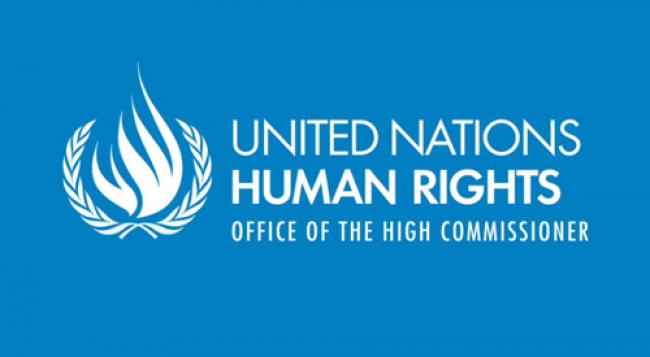01 Jul 2014

“The imposition of mass death sentences following blatantly unfair trials and for crimes that may not be punishable by death constitutes a staggering violation of international human rights law,” the UN independent experts said.
The Office of the High Commissioner for Human Rights (OHCHR) called the ruling the largest mass death sentence to be confirmed in Egypt in recent history.
On 21 June, a Criminal Court in Minya upheld death sentences in connection with events in the city last August against Muslim Brotherhood Supreme Guide Mohamed al-Badie and 182 other supporters of former elected President Mohamed Morsi. The defendants, whose charges range from threatening public order and setting fire to a police station to murder, were among 683 people provisionally sentenced to death on 28 April.
The UN experts have on at least two occasions, on 31 March and 15 May, decried the imposition of these sentences, which it said were pronounced following trials laden with procedural flaws. Those included a lack of precision in the charges, limited access to lawyers, trials in absentia, and mass sentencing.
“We are shocked by the repeated and deliberate use of mass death sentences,” stressed the experts. “We are deeply concerned that the courts have become instrumental in the arbitrary and politically motivated prosecutions by the State, which may also be discriminatory against people on the basis of religion or belief.”
According to available information, Egyptian courts have recommended the death penalty for 1,247 individuals since January and upheld such sentences against 247 individuals, all of whom were Morsi supporters.
The experts voiced alarm at what they said was the use of the death penalty to clamp down on political dissent and recalled that “death penalty is an extreme form of punishment and, if used at all, should only be imposed for the most severe crimes and following trials that scrupulously respect the guarantees of due process and fair trial as stipulated in international human rights law”.
The group of eight experts is comprised of: Christof Heyns, Special Rapporteur on extrajudicial, summary or arbitrary executions; Gabriela Knaul, Special Rapporteur on the independence of judges and lawyers; Juan Méndez, Special Rapporteur on torture and other cruel, inhuman or degrading treatment or punishment; and Pablo de Greiff, Special Rapporteur on the promotion of truth, justice, reparation and guarantees of non-recurrence.
Independent experts or special rapporteurs are appointed by the UN Human Rights Council to examine and report back on a country situation or a specific human rights theme. The positions are honorary and the experts are not UN staff, nor are they paid for their work.
The group also expressed concern on Monday at the recent resumption of executions in the country. Since 16 June, six men and a woman convicted of murder and forced robbery were hanged, in the first recorded executions in Egypt since 2011.
The experts also voiced alarm by the latest conviction of three Al-Jazeera journalists to 7 and 10 years of prison, in what appears to be a continued crackdown on the media.
Article 19 of the International Covenant on Civil and Political Rights, a binding treaty that Egypt ratified in 1982, states that ‘Everyone shall have the right to hold opinions without interference. Everyone shall have the right to freedom of expression; this right shall include freedom to seek, receive and impart information and ideas of all kinds, regardless of frontiers, either orally, in writing or in print, in the form of art, or through any other media of his choice.’
“Respect for justice and the rule of law is an international obligation and an essential component of any strategy for institutional consolidation and lasting reconciliation,” the experts noted, reiterating their call to the Egyptian authorities to reform the legal system and bring it into compliance with international standards.
Credit: OHCHR